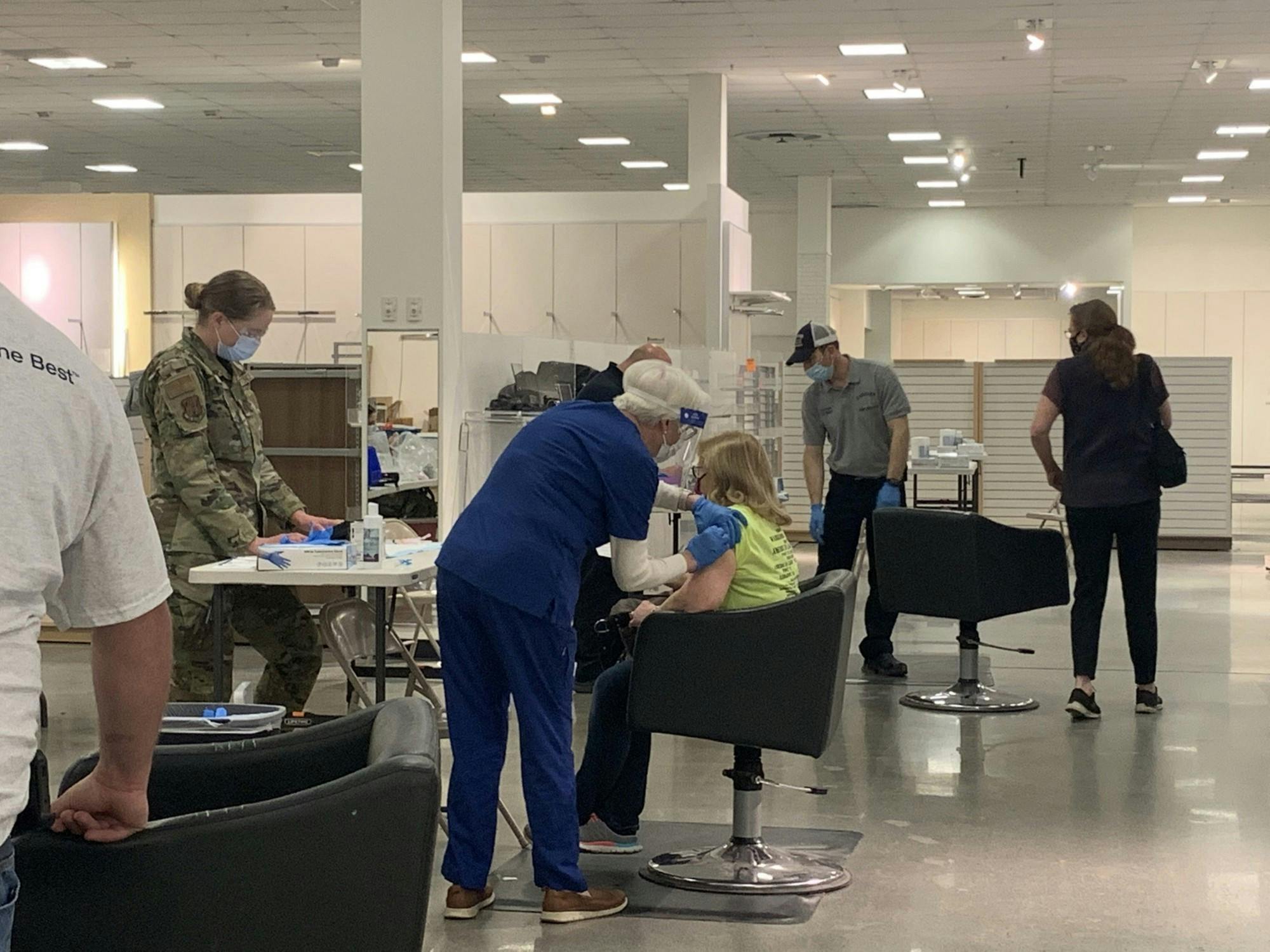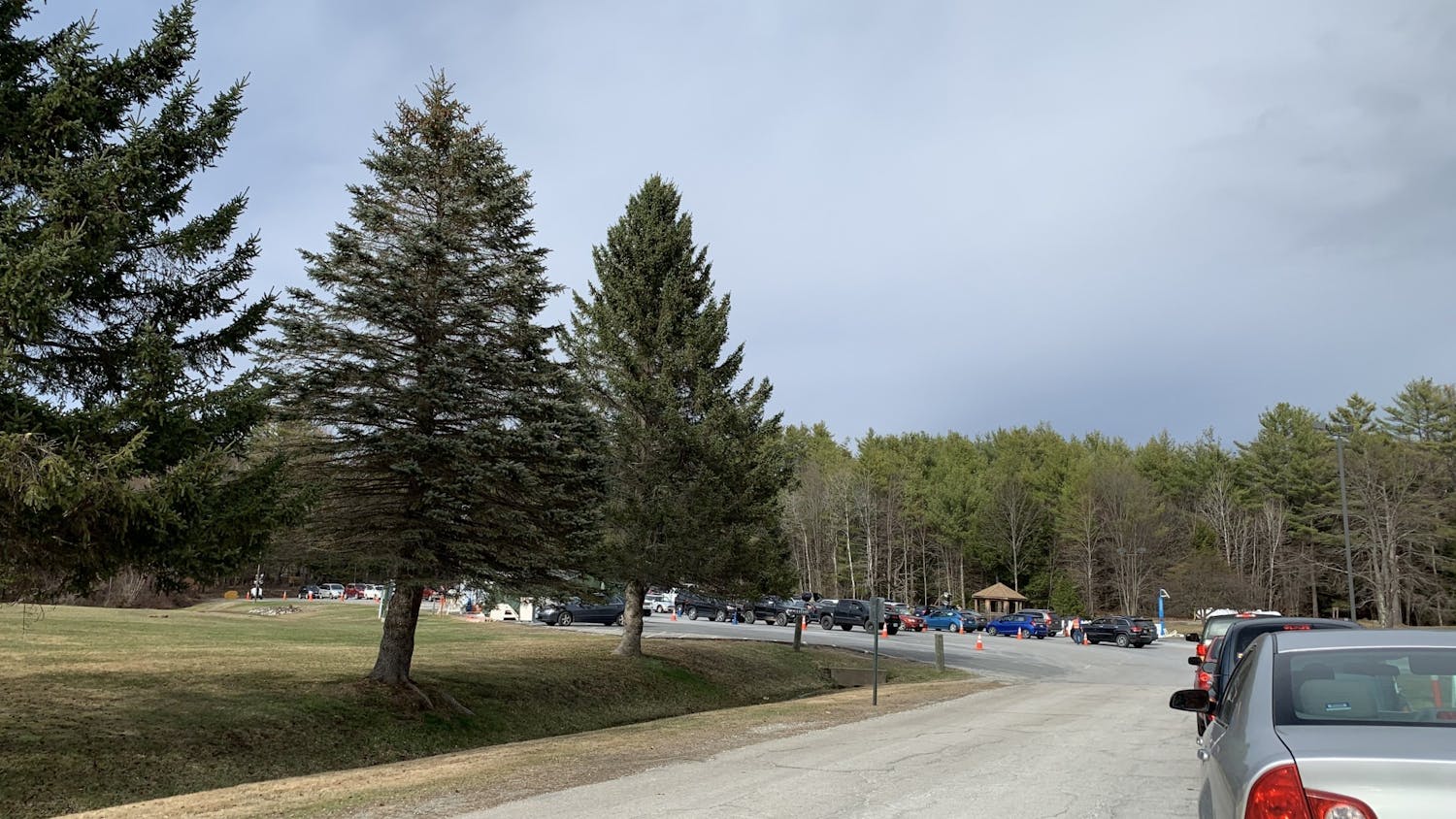When New Hampshire Gov. Chris Sununu announced that starting April 2, COVID-19 vaccinations would be available to New Hampshire residents over the age of 16, Dartmouth students scrambled to schedule their appointments. The initial excitement of the news quickly subsided, however, when the governor added that this expanded eligibility would not include out-of-state college students. Though Sununu ultimately reversed this policy and said that non-residents would be allowed to get the vaccine in New Hampshire beginning April 19th, the weeks between the two announcements resulted in a range of frustrating, confusing and stressful COVID-19 vaccination experiences within the Dartmouth community.
Some students were lucky enough to be vaccinated in their home states prior to returning to campus for the spring, while others are still waiting to book and attend their appointments here in New Hampshire. Some got the vaccine without encountering any difficulties in the process, while others have had to fight their way through a number of obstacles along the way.
For Nina Sloan ’24, the experience of getting vaccinated at J.C. Penney in West Lebanon was anything but smooth-sailing. Sloan is originally from New York City, and received her first dose of Pfizer at a Duane Reade pharmacy there.
Sloan said she was informed that she could bring either a driver’s license, passport or a valid employment contract from an employer to prove her residency. She opted to bring an employment contract with her legal Dartmouth address on it.
“When I arrived at the J.C. Penney, the first thing I saw was two military men arguing with around five Dartmouth students outside and turning them away,” Sloan said.
Once she got to the front of the line, she was asked to show a valid form of identification and proof of residency, to which Sloan responded by handing over the employment contract she had prepared. To her surprise, the officer rejected her employment contract as proof of residency. Only after Sloan asked him to read aloud to her the list of what was accepted as proof of residency did he realize that her employment contract was valid and let her in.
Overall, Sloan said her experience was “aggressive [and] intimidating” and that the officers gave her “a super hard time” while forcing her to prove her residency.
“The concept of going to Dartmouth is not mutually exclusive with being a New Hampshire resident,” Sloan said. “They made it extremely difficult to get the vaccine and when I asked why other students had been turned away, they said it was because they had their Hinman Box as their legal address and you cannot claim a P.O. box as your legal address. It was crazy and I felt lucky to get it.”
The J.C. Penney vaccination site, like many other sites throughout the state, is currently being staffed by the New Hampshire National Guard. In line with Sununu’s indication that vaccinating out-of-state college students was not a state priority, officers at these sites were strict in enforcing New Hampshire eligibility rules. In Sloan’s eyes, such circumstances created an intensely stressful and militant environment — a far cry, she said, from the professional, safe and sanitary atmosphere she experienced when receiving her first dose of the vaccine.
Only a short drive away, Colin Donnelly ’24 had a drastically different experience receiving his first dose of Pfizer, both because he is originally from New Hampshire and also due to his choice of vaccine site when registering. Donnelly signed up to receive the vaccine the first day he was able to, April 2nd, and scheduled his appointment for April 9th at Dartmouth-Hitchcock Medical Center. Donnelly said that the registration process as well as the vaccination experience itself was positive, simple and easy.
Veronica Yarovinsky ’24 had a combination of the two experiences: getting aggressively denied at the J.C. Penney site, and also going through a relatively simple process at DHMC. Like Sloan, Yarovinsky described a difficult experience at the J.C. Penney site, but in her case, she was ultimately denied a first dose of a vaccine.
Yarovinsky arrived at J.C. Penney on April 9th with a paystub, her voter registration document and a letter proving her on-campus residency to demonstrate that she both lived and worked in the state of New Hampshire. Though she had heard through word of mouth that many students were getting rejected at the site, Yarovinsky had done thorough research and preparation and was confident that she would be deemed eligible to receive the vaccine.
“I had all the paperwork to show that I lived in New Hampshire,” she said. “But when I got there, I saw two military officers and a police officer just as other people had described, and that’s when I started thinking, ‘this is all scary and unnecessary. There’s no way they’re going to let me get the vaccine.’”
Having gone through so much effort to even get to the vaccination site at all, Yarovinsky decided she would try anyway. But much like the students ahead of her in line, she was quickly rejected after the officers discovered she was a Dartmouth student. What followed was a lengthy back-and-forth conversation between Yarovinsky and the officers present. She continued to explain how her documentation met the eligibility requirements while the officers maintained the reasoning that because she was an out-of-state college student, it was against the law for them to let her be vaccinated.
Eventually, the officers brushed Yarovinsky aside, told her it was “far above their pay grade” to continue debating with her and sent her to talk with a police officer standing at the entrance. Like the National Guard officers, the police officer was largely unwilling to argue with Yarovinsky, and essentially made her leave the building, she said.
Around a week later, like Donnelly, Yarovinsky received the first dose of the Pfizer vaccine at DHMC with practically no issues.
“All they cared about was that you had an appointment and that you were the person who signed up,” she recalled.
Now that April 19 has passed and Sununu’s policy revision has taken effect, the rest of the Dartmouth community looks forward to receiving their first and second doses in the weeks to come.
Despite having conflicting experiences with receiving their vaccines, Sloan, Donnelly and Yarovinsky all highlighted that they were grateful to have received it and were glad to be one step closer to normalcy.
“It’s important to me that college students receive the vaccine so we can go back to normal because everything has been so disrupted,” Yarovinsky said.
Nina Sloan ’24 is a member of The Dartmouth staff.
Caroline Kramer ‘24 is a Government major and Public Policy minor from Palo Alto, California. She has served as the Photo Editor since the spring of 2022 and previously wrote for the Mirror section.




